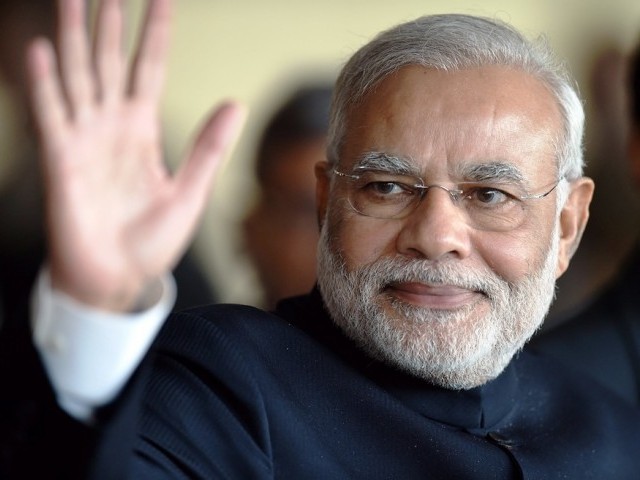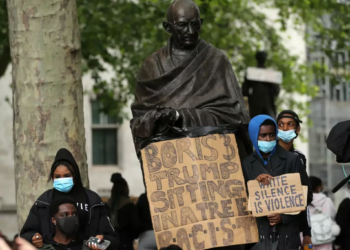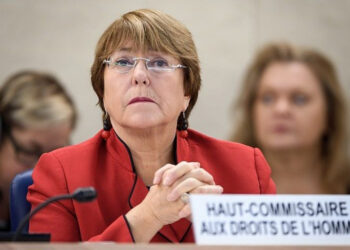The federal government in New Delhi has come under fire from opposition parties and rights groups after issuing a controversial order on December 20 granting itself sweeping surveillance powers.
The order, issued by the ruling Bharatiya Janata Party’s Ministry of Home Affairs, has stirred a political hornet’s nest in India while many rights activists ask whether India is turning into a “surveillance state.”
Ten of the country’s intelligence agencies have been granted power to intercept and monitor data, both in motion or stored in computers, and even seize devices.
The agencies have the powers of “interception, monitoring and decryption of any information generated, transmitted, received or stored in any computer,” according to the order issued by India’s Home Secretary, Rajiv Gauba.
In a strongly-worded tweet, the head of Congress Rahul Gandhi called Indian Prime Minister Narendra Modi an “insecure dictator.”
Converting India into a police state isn’t going to solve your problems, Modi Ji.
It’s only going to prove to over 1 billion Indians, what an insecure dictator you really are. https://t.co/KJhvQqwIV7
— Rahul Gandhi (@RahulGandhi) December 21, 2018
After Gandhi’s tweet, the political heat picked up pace over the federal government’s order on snooping of personal computers, laptops, tablets, and mobile devices of Indian citizens.
The government of India also plans to get access to encrypted data on the popular messaging app, Whatsapp.
According to the order issued under Section 69(1) of the Information Technology Act of 2000, the service provider, subscriber or person in charge of a computer device is bound to cooperate and extend all technical assistance to the intelligence, spy and security agencies.
Anyone who refuses to cooperate will have to face the law. Non-compliance can lead to imprisonment which may extend to seven years.
The latest MHA order gives that power to the Intelligence Bureau, Narcotics Control Bureau, Enforcement Directorate, Central Board of Direct Taxes, Directorate of Revenue Intelligence, Central Bureau of Investigation, National Investigation Agency, Cabinet Secretariat, Directorate of Signal Intelligence (in Jammu and Kashmir, North-East and Assam only) and the Delhi Police Commissioner.
‘Orwell is Around the Corner’
India’s top spy and security agencies including the RA&W, CBI, IB and NIA are authorized to monitor not just calls or emails, but any data found on a computer, with the permission of India’s home secretary.
P Chidambaram, a senior Congressional leader and India’s former minister for home and finance drew comparisons to George Orwell’s famous dystopian novel, “1984.”
“If anybody is going to monitor the computer, including your computer, that is the Orwellian state. George Orwell is around the corner. It is condemnable.”
Speaking exclusively to The Globe Post, Salman Soz, another Congress leader, economist and his party’s spokesperson, said that “The Modi government has a record of elevating the state above the citizenry.”
“Be it this recent order seeking to obliterate citizens’ privacy rights or the draconian demonetization that damaged economic rights and interests of Indians, Modi’s politics is about the government’s commanding heights, with him on top,” Soz argued.
“As with other strongmen, there is an element of paranoia that makes everyone a suspect unless proven otherwise. Recent election defeats … for Modi’s political party will add fuel to this fire as we get closer to the 2019 parliamentary elections.”
Predictably, many prominent human rights defenders are angry over the new order. They are describing the order as an attack on individual privacy and a brazen attempt to stifle dissent and free speech.
Kashmir Targeted
Khurram Parvez, chairperson at Asian Federation Against Involuntary Disappearances and a well-known rights activist, told The Globe Post that “sooner or later these tactics, which infringe upon the right to privacy and dignity of people used by Indian state in Kashmir, will be implemented against all the voices of dissent even within India.”
Pakistan and India claim the disputed Himalayan region of Jammu and Kashmir in full, but administer it in parts since the partition.
In his additional capacity as program coordinator at Jammu and Kashmir Coalition of Civil Society, Parvez further said the people of Kashmir have become desensitized to rights violations.
“The snooping by Indian intelligence and police is an old phenomenon faced by people of Kashmir and now it no more invites outrage from Kashmiris for they have got accustomed to it,” he said.
He is not off the mark in his assessment.
On December 21, the police in Indian-administered Jammu and Kashmir admitted to the Srinagar-based English newspaper, Greater Kashmir, that “there is nothing new” in the MHA guidelines because “such an exercise is already in vogue since 2000” in the disputed region.
Importantly, the top spy agencies will also have powers to seize the devices, in the name of “national security.”
‘Snoopendra Logs In’
Meanwhile, the Communist Party of India in its official statement termed the new MHA directive “an unconstitutional order.”
“This is a brazen attack on the fundamental right to privacy given to every citizen by our Constitution,” a statement issued by the CPI said.
Sitaram Yechury, one of India’s prominent leftist leaders and a member of the CPI, demanded that the Modi government should immediately rescind the order.
“The common Indian is squeezed in every possible way by this thoughtless, callous and brazen government that only serves its cronies and masters at Nagpur,” Yechuri wrote, referencing the headquarters of the Hindu right-wing Rashtriya Swayamsevak Sangh.
Apart from politicians and rights activists, some top newspapers also reacted sharply against the MHA decree.
For instance, The Telegraph, one of India’s popular newspapers based in Calcutta in the eastern state of West Bengal that has a reputation for writing catchy headlines, took a dig at Modi with the publication’s main headline on December 22: “Snoopendra logs in.”
In its defense, the ruling Hindu nationalist BJP said that the government was securing its national interest and that there was nothing new in the order that did not exist before.
Khalid Jehangir, a young BJP spokesperson, said that India’s National Security Advisor Ajit Doval was securing the country’s national interest.
“The [National Security Adviser] is only securing the country’s national interest. If something is needed to secure national interest it has to be done. But as far as Jammu and Kashmir is concerned there is nothing new,” Jehangir told The Globe Post.
After the uproar and stiff opposition from the Congress party, communist parties and human rights defenders and activists, the MHA issued a clarification on 21 December.
“The Statutory order (S.O) dated [December 12] has been issued in accordance with rules framed in year 2009 and in vogue since then,” the MHA said in a statement, adding that “No new powers have been conferred to any of the security or law enforcement agencies.”
On December 24, a public interest litigation was filed in the Supreme Court of India to challenge the government’s new snooping law.
“The blanket surveillance order must be tested against the fundamental right to privacy,” the petition said.
More on the Subject
Governments worldwide are stepping up the use of online tools, in many cases inspired by China’s model, to suppress dissent and tighten their grip on power, a human rights watchdog study found in November.
The annual Freedom House study of 65 countries found global internet freedom declined for the eighth consecutive year in 2018, amid a rise in what the group called “digital authoritarianism.”
The Freedom on the Net 2018 report found online propaganda and disinformation have increasingly “poisoned” the digital space, while the unbridled collection of personal data is infringing on privacy.
Chinese-Style ‘Digital Authoritarianism’ Grows Globally [Study]




















